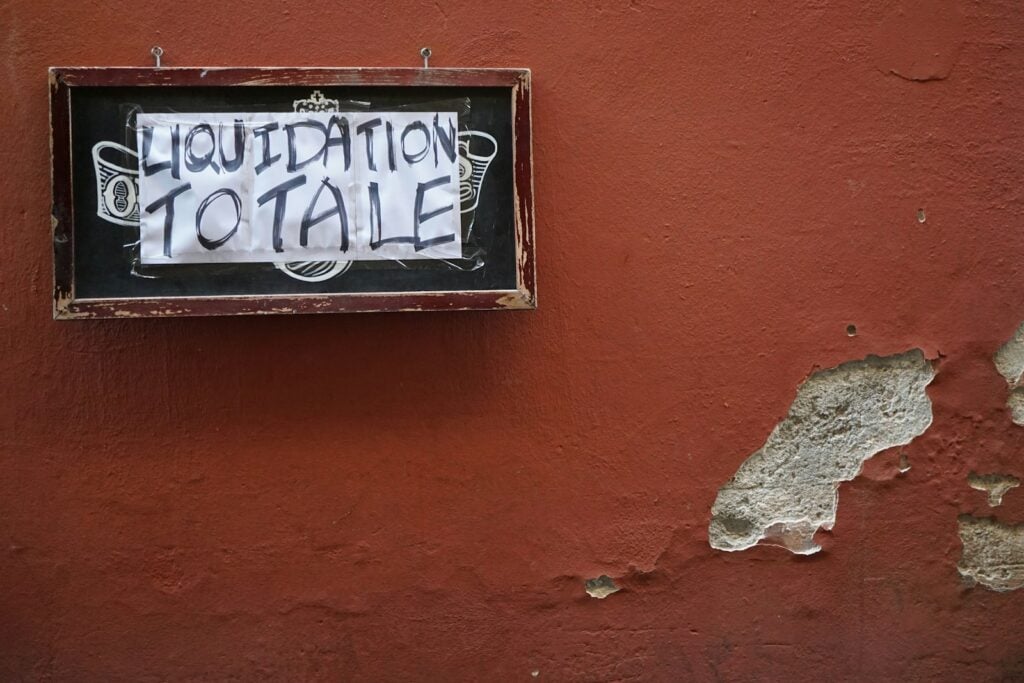Retention of title is a legal mechanism that is as discreet as it is effective, enabling sellers to secure payment of their receivables. By suspending the transfer of ownership until the price has been received in full, it constitutes a formidable guarantee, particularly in the event of default by the buyer. Our firm, whose practice is dedicated to the law of securities and guaranteesHowever, the scope and conditions of this clause are often misunderstood. This article provides a comprehensive overview of the clause, from its legal nature to its implementation and effects during insolvency proceedings. Each aspect covered here is dealt with in more detail in dedicated articles, which can be accessed via the links provided.
Introduction to retention of title: definition and legal nature
Definition and guarantee function
Article 2367 of the French Civil Code defines a retention-of-title clause as a stipulation that "suspends the transfer effect of a contract until full payment of the obligation that constitutes its consideration". In other words, although the buyer may have physically received the property, the seller remains the legal owner until the price has been paid in full. Its primary function is therefore that of a payment guarantee. In the event of non-payment, the seller does not join the creditors to claim a sum of money: he acts as the owner to recover his property.
Use of the property as security
Retention of title is part of a broader category of security interests based on the right of ownership. Unlike traditional security interests such as mortgages or pledges, which confer a right over the property of another, enhanced property security uses the property itself as collateral. Other mechanisms, such as security trusts, allow the debtor to temporarily transfer ownership of an asset to its creditor. Reservation of title, on the other hand, consists of the creditor retaining property that he already owns, offering first-rate legal certainty.
Link with other branches of law (bonds, securities, companies in difficulty)
This mechanism lies at the crossroads of several disciplines. It comes under the law of obligations, because it arises from a contractual clause that modifies one of the main effects of the sale, namely the transfer of ownership. It is obviously of interest to property law and the law of security interests, because of its nature as a real guarantee. Finally, its effectiveness is fully revealed in the law of companies in difficulty, where it enables the owner-creditor to escape the principle of equality between creditors in the collective proceedings.
Legal nature: a security interest that is both real and ancillary
Retention of title is a security interest in rem, meaning that it relates to a thing (the property sold) and not a person. It is also ancillary to the price claim that it secures. This ancillary nature means that it cannot exist without the claim and is transferred with it. Case law and the law classify it among movable securitiesAlthough it differs in certain respects from other guarantees, in particular in that it does not confer a preferential right over the sale price, but rather a right to restitution, it does not confer a right of restitution.
National and European sources
Under French law, retention of title is governed mainly by articles 2367 to 2372 of the Civil Code, which were introduced by the 2006 Order on security interests, and by Book VI of the Commercial Code for its application in the context of collective proceedings. These provisions have been clarified and supplemented by the changes brought about by the 2021 ordinance in the law of security interests and insolvency proceedings. At European level, directives, particularly those concerning the fight against late payment, set out the conditions for its validity in commercial transactions.
Creation of a reservation of title: conditions of validity and enforceability
Validity: field of application (contracts and goods concerned)
The retention of title clause can be included in any contract involving the transfer of ownership. While sales are its preferred field of application, it is also valid in a contract for services. Its scope is vast: it can apply to tangible movable property (goods, equipment) or intangible property (business goodwill, company shares), but also to immovable property, even if it is not a contract of sale. property ownership as a guarantee is a less common practice with less detailed rules.
Agreement of the parties: common law and commercial conditions (in writing, acceptance)
To be valid, the clause must have been agreed in writing by the parties. This requirement, set out in article L. 624-16 of the French Commercial Code, is a condition of enforceability in the event of insolvency proceedings. Acceptance by the buyer must be established at the latest at the time of delivery. While a signature on an order form or quotation constitutes the most reliable proof, case law accepts that, in the context of an ongoing business relationship, acceptance may result from the performance of the contract with full knowledge of the facts, for example by the systematic mention of the clause on invoices or delivery notes, without any protest from the buyer.
Enforceability: proof of ownership and the role of publicity
The enforceability of the clause against third parties, in particular the buyer's insolvency proceedings, depends on the seller's ability to prove his right of ownership. A written document is therefore essential. Unlike other security interests, the retention of title clause is not subject to any compulsory publication formalities in order to be enforceable against third parties. Publication is possible, however, and offers a major procedural advantage: it relieves the owner of the need to bring a formal claim and allows him or her to simply ask for the property to be returned.
Realisation of the retention of title: action for reclamation and consequences
Claiming the property: in the absence and presence of collective proceedings (movable and immovable property)
Outside the scope of any collective proceedings, an unpaid seller may take legal action, such as seizure and reclamation, to obtain the return of the property. However, it is important to be aware of obstacles and limits to seizure and attachment procedures. However, it is when a debtor is in receivership or liquidation that the clause really comes into its own. The vendor-owner may bring an action for recovery against the administrator or the court-appointed agent. This action, which must be brought within three months of publication of the opening judgment, enables the seller-owner to recover the property without having to compete with other creditors. This mechanism clearly illustrates what happens to secured creditor rights during insolvency proceedingswhere the owner takes precedence over the others.
Claiming the price: the mechanism of real subrogation and conflicts
What happens if the property has been resold by the buyer before the original seller was able to claim it? The mechanism of real subrogation, set out in Article L. 624-18 of the French Commercial Code, applies. The seller's right of ownership is then transferred to the original buyer's claim against the sub-purchaser for the resale price. The original seller can therefore claim payment directly from the sub-purchaser. The Order of 15 September 2021 has clarified a long-debated point: the sub-purchaser may now raise against the original seller the defences that it could have raised against its own seller, bringing this regime into line with that for the assignment of a claim.
The fate of retention of title: transfer and survival
Transmission: creditor's options and methods of circulation (subrogation)
The retention of title clause, as an accessory to the price claim, is transferable. A seller who assigns his claim to a financial institution, for example by means of a Dailly slip, also transfers the benefit of the clause to the financial institution. Similarly, a lender who finances the acquisition of the property may, through the mechanism of contractual subrogation, be vested with the seller's rights and take advantage of the retention of title. This circulation of the security makes it an effective financing tool.
Survival: impact of debt forgiveness
A sensitive issue concerns the fate of the clause when the buyer's debt is written off, for example under a personal recovery procedure. A 2014 decision by the Court of Cassation held that the erasure of the debt did not amount to its payment and that, consequently, the transfer of ownership did not take place, leaving the retention of title to survive. Although the accessory nature of the security may cast doubt on this solution, the 2021 reform of the law on security interests, despite debates on the subject, did not enshrine any provision to the contrary. The debate on the survival of the clause in the event of extinction of the claim for a reason other than payment therefore remains open.
The retention of title clause is a powerful but technical instrument, whose validity and effectiveness depend on compliance with specific conditions. For an in-depth analysis of your situation and the implementation of appropriate guarantees, contact our team of lawyers who are experts in securities and guarantees.
Frequently asked questions
What is a retention of title clause?
This is a contractual clause that delays the transfer of ownership of a property until the buyer has paid the price in full. It serves as a guarantee for the seller, who retains ownership until full payment has been made.
How can I enforce my retention of title in the event of insolvency proceedings?
A claim must be lodged with the court-appointed agent or liquidator within three months of publication of the judgment opening the proceedings. This action is used to claim the return of the property.
Does retention of title apply to buildings?
Yes, the Civil Code provides that ownership of a building may be retained as security. However, this practice is less common than for movable property, and the rules specific to insolvency proceedings mainly apply to the latter.
Can I claim the sale price if the property has been resold?
Yes, thanks to the mechanism of real subrogation, your right of ownership is transferred to the claim for the resale price. You can then claim payment directly from the sub-purchaser, up to the limit of the outstanding price.
Has the reform of security interests changed retention of title?
Yes, the 2021 Order has clarified the rights of the sub-purchaser, who can now raise certain exceptions against the original vendor. It has also changed the debate on the fate of the clause in the event of a debt write-off, although the issue has not yet been definitively settled.
What should I do if the debtor doesn't pay and I have a reservation of title?
You must take legal action to obtain the return of your property. If you are not involved in insolvency proceedings, this may take the form of a seizure and reclamation. In the event of insolvency proceedings, it is essential to comply with the claim procedure within the legal time limits.
Sources
Civil Code, articles 2367 to 2372
Commercial Code, articles L624-9 to L624-18
Order no. 2021-1192 of 15 September 2021 reforming the law on securities




